At present, Angela House is home to 32 children aged between three and 16, as well as seven nuns. The devotion and affection of the house mothers - the nuns who care for the children - is overwhelming. Love is provided 24/7, without distinction, preferences or complaint.
"They may not be our biological children, but it seems as if they were born to us out of love. We are mothers to these children," 35-year-old Sr Paula says.
"You grow to love them so much that there is nothing you won't do for them. It is intrinsic for us to give everything up for them and to share the love of God with them. It is too difficult to explain such a concept with words. It is above that, almost spiritual," Sr Michela adds.
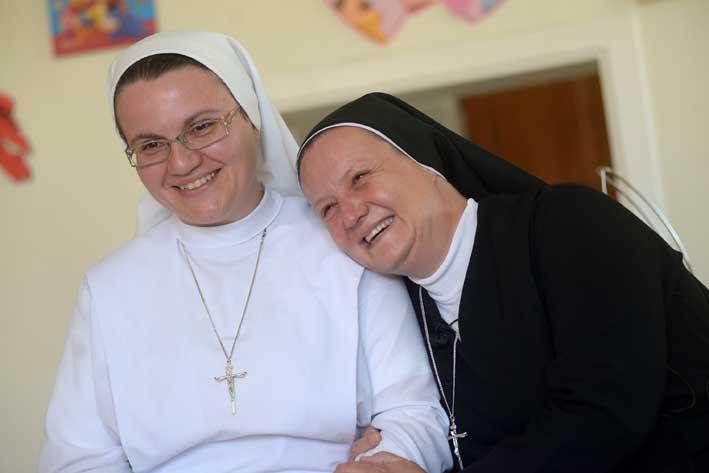
Before joining the team at Angela House, Sr Michela worked at the crèche in Sliema for 25 years. She admits that her adolescent years were not pleasant. "I was trying to start over when I joined a prayer group that met up at the crèche. Never in a million years had I thought about becoming a nun. I come from a big family and I always told my mother that I would get married and have lots of children. In a way, that still happened. I believe God took the decision for me, and He has definitely made the right choice. Somehow, I managed to transform the negative experiences I had gone through into something beautiful," she says.
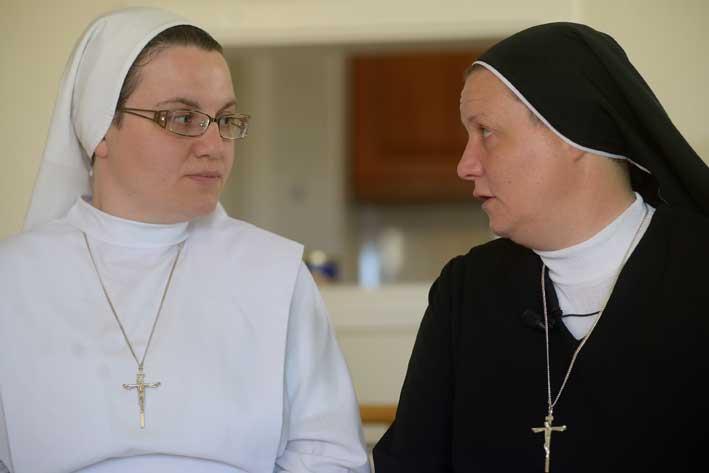
Sr Paula worked as a teacher before joining the community. "Inevitably, it wasn't easy to leave my career and my family. But knowing that you're doing so for something that will give you more contentment eases the ache. It is similar to when you move to a new home with your new husband or wife."
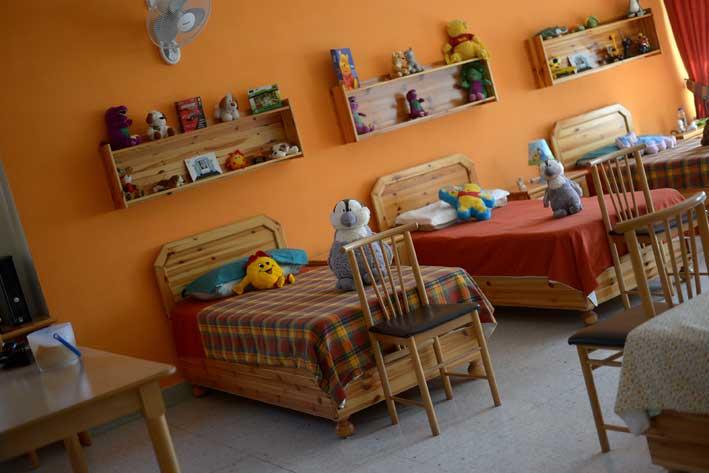
Apart from being in charge of a group of eight children, the young nun is studying for her Master's degree. "I only find time to study at night after the children are in bed. Sometimes I go to sleep in the early hours of the next day, only for one of the children to come crawling in to bed with me because of a nightmare or simply because they want a cuddle," she says with a smile.

The heartbreak of letting go
Like parents watching their children fly the nest, it is heartbreaking for the nuns to let go of the children when the time comes. Girls are welcomed to stay at the home until they are 16, but the boys have to move to another home, once they turn nine.
"Even talking about it gives me goose bumps, let alone having to go through it. But this is our life, we must love and let go. Once you have given them your very best, you can only let go and hope for the best." Most youngsters keep in touch with the nuns and visit them often, but it's more challenging when they are adopted by a foreign family.
"Sometimes we have children who have been with us since they were newborns and who stay until they are sixteen. Can you imagine how difficult it is to see them go? It is not the first time I've found nuns crying in the rooms of children who have left, because of how much they miss them. When one child leaves, all the community feels the absence," Sr Michela says. "They don't leave because we no longer want them here, but because they have reached a new stage in their life. We have to admit, however, that we are happy to see them move into a new life."
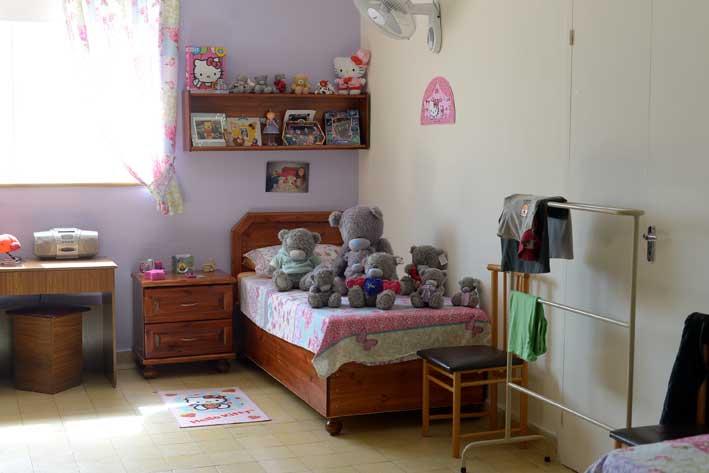
The day we found a newborn baby inside a shoebox
Both nuns have memories of various moments they've experienced over the years. Sr Michela recalls the day the nuns found a baby in a box outside their home one Christmas. "I remember going down to feed the little ones and finding complete chaos by the front door. The sisters on night duty were just opening up the gate for the milkman, when they noticed a closed shoebox outside the door. They thought someone had left some kittens, before they opened the box to find a newborn. The baby's umbilical cord was still attached, he had no clothes on and still needed to be washed. Needless to say, we were ecstatic."
Following a medical examination, the baby was handed over to the welfare services. An appeal for his parents to come forward appeared in all the media, but the baby remained unclaimed and after six months he was given up for adoption.
"There are simple moments which mean a lot, like when a toddler takes his first steps or says his first words, particularly when 'sister' (not pronouncing the 's') is their first word! All the nuns are called in and we rejoice together. Of course, besides the pleasant moments, we also accompany these children through difficult periods and try as much as possible to ease their pain," Sr Paula adds.
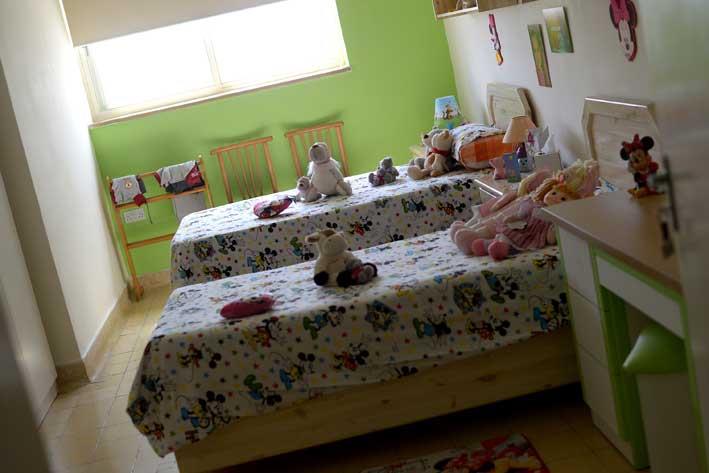
The importance of providing a family environment
"These children have an empty space that is not easy to fill, but we do our best. At least, these children find someone waiting for them when they come home from school; they have food on the table, a room of their own and, most of all, love" says Sr Paula.
"There is nothing more rewarding than offering love to your children. Of course it is hectic and stressful, but our prayers are with all the mothers. We are ready to welcome everyone who needs help with open arms. It is no dishonour to ask for assistance. In any case, I always stress that a family that prays together, stays together."
The Ursoline sisters offer their services voluntarily and rely on donations to maintain such a big house and family. "It would be impossible if we did not receive help. It's been a miracle so far and it only proves how much God wants to offer this home to these children. The Maltese are extremely generous; when we go to buy things for the home, shopkeepers offer a donation or their goods for free. It is truly a blessing," Sr Michela says.
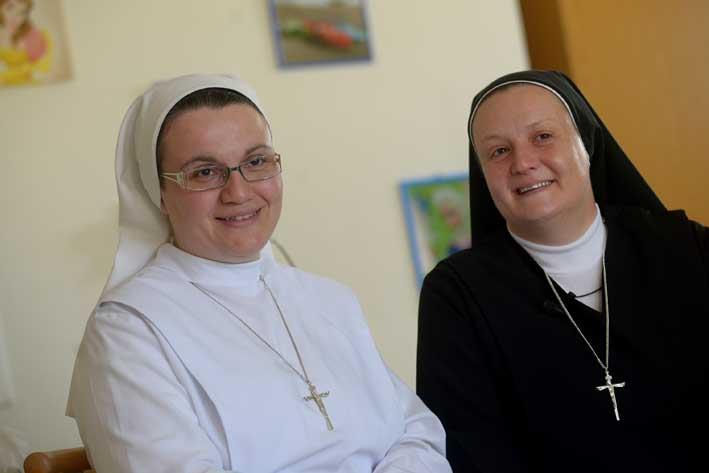
The sisters are responsible for the children's nutrition, health, hygiene and education. They also need to care for the children in-between school, meetings, CDAU meetings and speech and psychological therapy sessions. The community also takes care of children of migrants and refugees but there is no distinction between these children and the locals. The nuns explain that their parents are extremely thankful for the work carried out by the nuns, despite not being Catholic. "The love these parents have for their children is absolute. No one deserves to go through such devastating circumstances," Sr Paula says, adding that most often the children are under-nourished and require extra attention.
In earlier times, unmarried mothers were frowned upon by society and the nuns had a specific home in Rabat where they welcomed them. Today that home is used for a different purpose. However, the nuns still help young women and couples who have difficulties bringing up their children. The nuns also give a home to children who were born as a result of rape. "We do not reject anyone. Whatever the situation, we will always help in any way we can, particularly when a child's future is involved."
Last year, the children were overjoyed to see their guardians performing on stage during The Malta Song for Europe Contest, but the nuns are not yet giving any clues as to whether or not they will be competing again. "We still hear the children singing the song. Toddlers as young as three know the entire song by heart. The experience meant a lot to us, because we were ultimately singing for them."
The nuns will be spending Mother's Day with the children, but will also make time to see their own mothers.
A bazaar in aid of the Ursoline Sisters will be held at Angela House between Monday, 11 and Saturday, 23 May from 8.30 am to 1 pm, Sundays excluded.